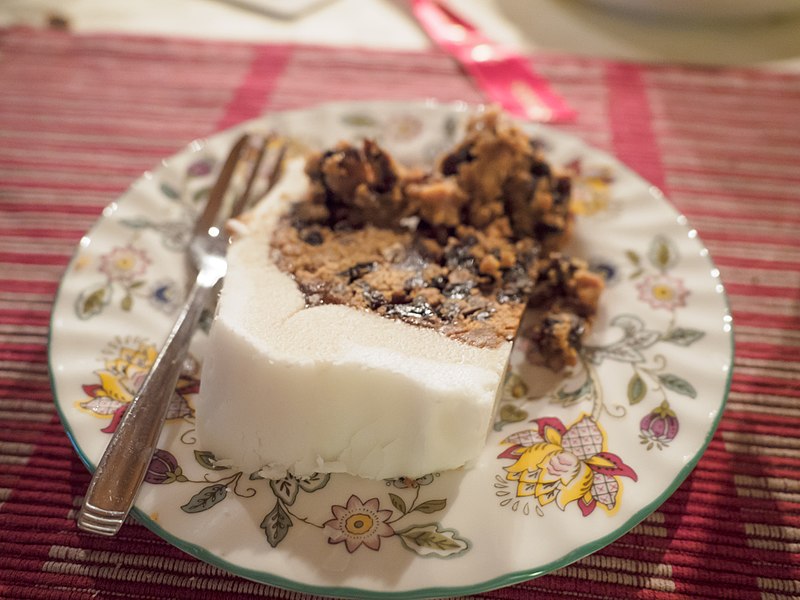There are two types of marzipan that I know about.
There's the paste made of ground almonds, sugar and egg yolk (250g ground almonds, 125g of caster sugar, 125g icing sugar, one egg yolk. You just mix it all together):
You can make marzipan into sweets:

photo by Aurelien Guichard
You can use it to make the balls on a simnel cake:

by James Petts from London.
And you can use it to separate the smooth royal icing from the crumbly bits of cake:

This is by James Petts, too.
Then there's the other kind of marzipan layer, which describes the middle-managers in a financial (or any other) institution. You know, the ones that stick things together okay, but who no one especially appreciates and that most people suspect are largely unnecessary, and who definitely don't add much pleasure to the process or polish to the final product.
Well, you can at least see why it's called a marzipan layer, can't you.
Try not to get too annoyed spotting one near you.
Spot the Frippet: marzipan. This word came to English from German from the Italian marzapane. Before we had marzipan we had marchpane. It's the same stuff, but that word came from France. The word marzipan might be something to do with St Marcus.
There are a couple stories about the invention of marzipan, one is that it was first made in a bad harvest year in Italy when almonds were the only grain available, and there's also a lovely Estonian story about a pharmacist's apprentice called Mart. A city councillor got sick, and the pharmacist promised him a cure. But the pharmacist himself was ill and he was sneezing so much he kept blowing all his powders away, and so the task of making a cure fell to the apprentice Mart, who, knowing that he was going to have to taste the stuff himself to prove it wasn't poisonous, made sure it was delicious.
The mixture was therefore called Mart's bread (Mardileib in Estonian).
And they all lived happily ever after.
No comments:
Post a Comment
All comments are very welcome, but please make them suitable for The Word Den's family audience.